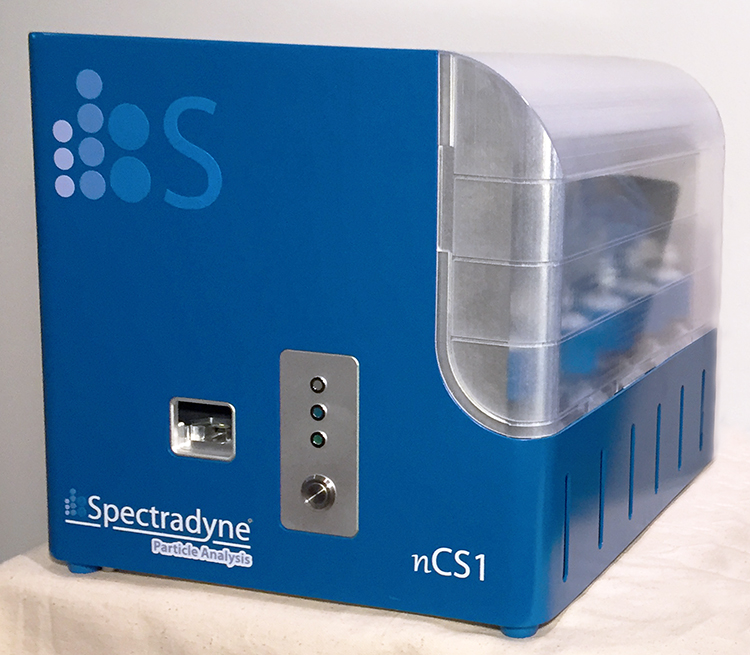nCS1 Nanoparticle Analyzer
- Price:
- Request a Quote
- Vendor:
- Spectradyne LLC
- Country:
- United States | Contact Details
-
Spectradyne's nCS1 instrument provides a unique platform for the rapid quantitative measurement of nanoparticles in solution. The method used to measure nanoparticles is electrical in nature, so does not rely on an optical index contrast to distinguish particles from their suspending medium. The instrument measures individual nanoparticles and rapidly accumulates statistically-reliable distributions of particle sizes with quantitative concentration information. This unique capability separate the nCS1 from any other instrument on the nanoparticle analysis marketplace.
*Resistive pulse sensing and size measurements of individual nanoparticles in fluid
*Disposable microfluidic cartridge that avoids cross-contamination, and only requires 3 microliters of sample
*Reports particle size distribution with absolute concentration
*Particle sizes: 40 nm to microns in diameter
*Concentration range: approx. 10e6 — 10e12 particles/mL
*Max particle detection rate: approx. 10,000 particles/s
*Nanoparticles of any material type (transparent & opaque, conducting & insulating)
*Bench-top footprint -

Spectradyne LLC, has developed a nanoparticle analyzer based on Resistive Pulse Sensing (RPS, aka “Coulter Principle”), which overcomes some of the limitations found with light scattering-based methods, particularly with respect to resolving polydispersity and being able to measure concentration.
The nCS1 is capable of sizing nanoparticles down to 30 nanometers in diameter using less than 3 microliters of analyte. It can count at a rate of up to 10,000 particles per second and can measure arbitrarily polydisperse mixtures at a size precision of 3%. It detects individual particles electrically, so does not suffer from the limitations of optical methods.
Visit company website
The contents of this site are copyright ©2005-2024 Nanowerk. All Rights Reserved.

